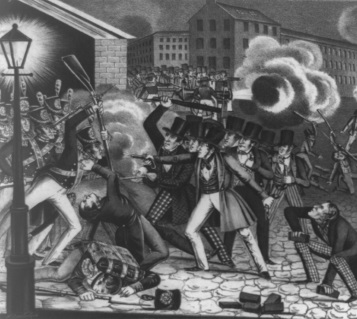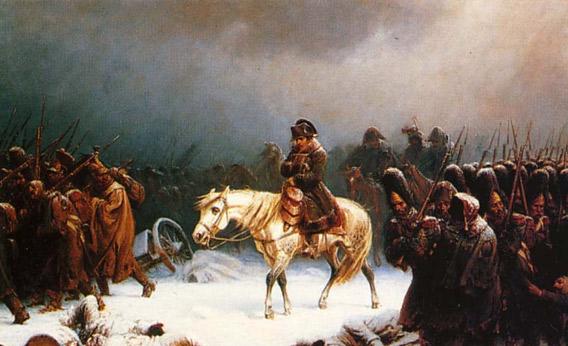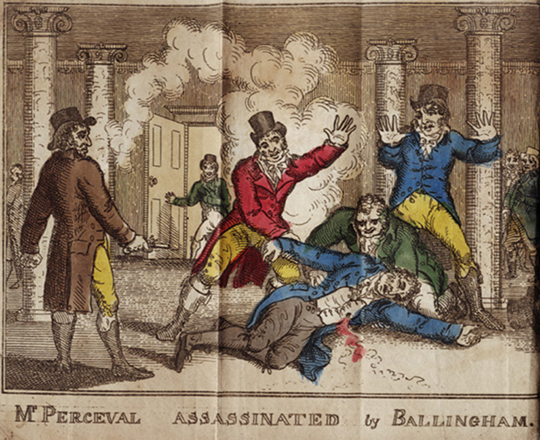The year 1812 is remembered in America as the first year in a long, but forgotten war. That, and the “1812 Overture.” Many of the famous events of that war happened in subsequent years, but some other things happened in 1812, as well. In Europe the curtain was up on the closing act of the Napoleonic adventures, the Prime Minister of Great Britain was assassinated, for the only time in history, and the famous Luddite attacks on modernity were defended by Lord Byron, with more than a little smug satisfaction.
America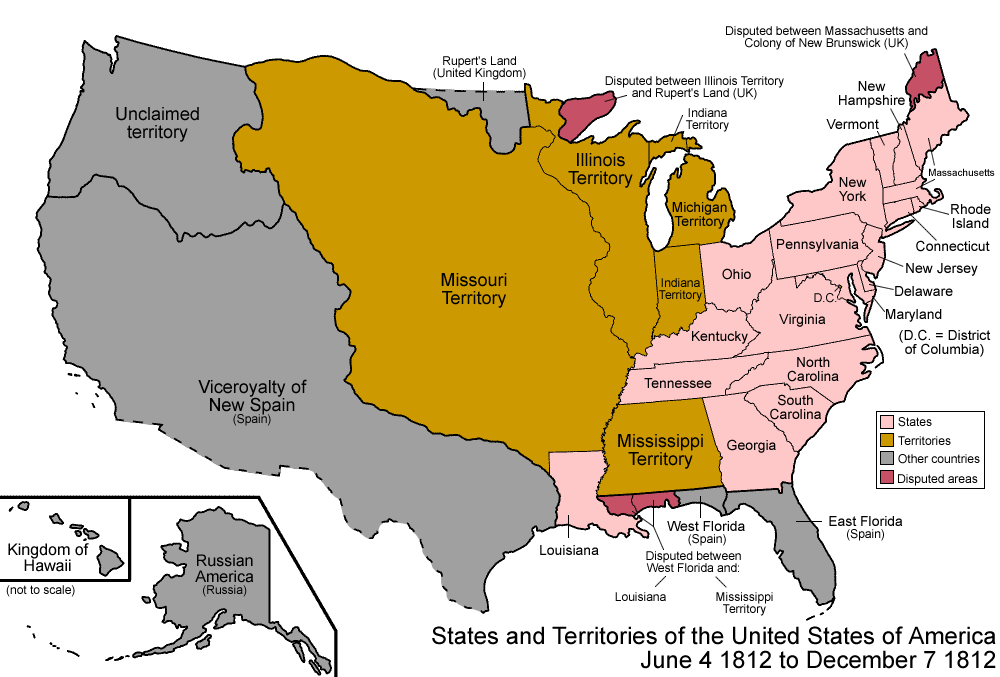 In the United States, James Madison was in the last year of his first term as president. His Vice President, George Clinton, died on April 20. Madison was nominated for a second term, and was opposed by his late Vice President’s nephew, DeWitt Clinton. Madison won and his wife went on to save Washington’s picture when the British burned the White house in 1814. You may not know that James Maddison became the only President to physically, and personally lead troops into battle. It was a debacle. The war wasn't universally popular in America. Riots in Baltimore added to the war-time casualties, as we learn in the account linked below. The USS Constitution gained the nickname “Old Ironsides,” in a battle off Novia Scotia. The term “Gerrymander” came into the American language
courtesy of the Boston Gazette. The New England Journal of Medicine began
publication. The last of the New Madrid earthquakes struck. There was also a major quake in Wrightwood California. Louisiana was admitted as the 18th state, and the remainder of the Louisiana Territory was renamed, the Missouri Territory. City Bank of New York, now Citibank, was founded in 1812. Alexander Stephens, future Vice President of the Confederate States of America was born. James “Grizzly” Adams was born. Martha Ballard, the inspiration for 1991 Pulitzer Prize winning, “A Midwife’s Tale,” died. Also leaving the scene that year were Sacagawea, the artist of a prominent painting at Mount Vernon, and the namesake of Barlow, Ohio. | Europe Napoleon instituted the metric system, and then invaded, and retreated from Russia. The Prime Minister of Great Britain was assassinated. Poor Anna Laetitia Barbauld, an up and coming literary figure in England at the time, tried to warn her fellow citizens to mend their wicked ways (and to steer clear of Napoleon). She was never forgiven. The Brothers Grimm Fairy Tales, volume one, was published. Charles Dickens and Edward Lear were born. |
 The Richmond Theater Fire on December 26, 1811, was the subject of extensive journalism and opinion, and continues to captivate. |
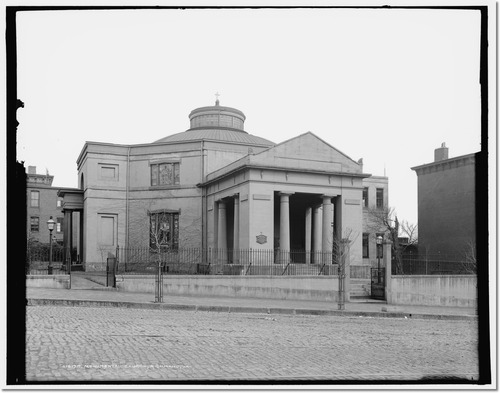 The story of the fire has many moral lessons and they have all been told and retold. |
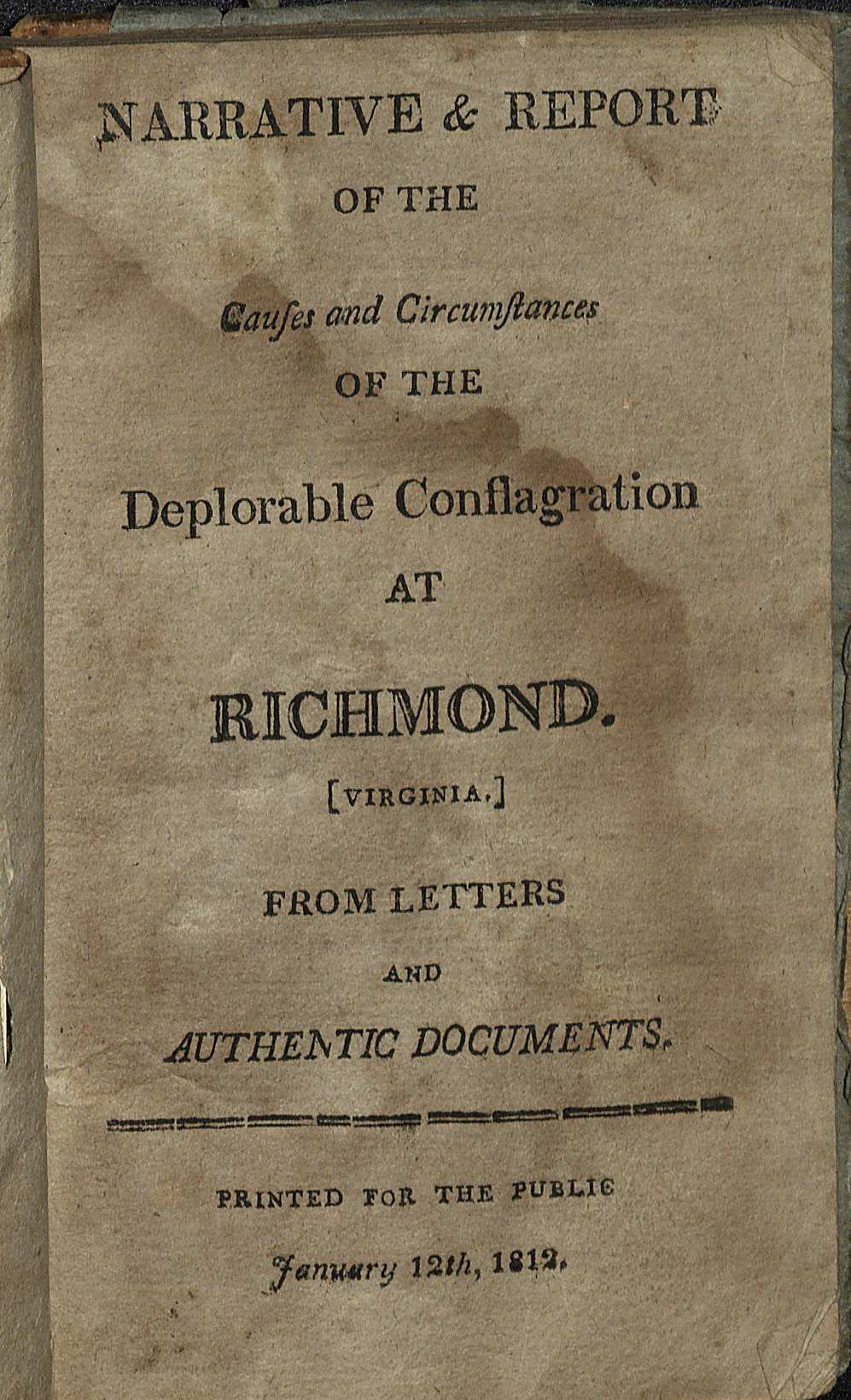 At the time, and in subsequent decades, the story of the fire remained popular, and educational. |  Gilbert Hunt, an African slave operating a blacksmith shop near the burning theater, became a national, and historic hero by saving numerous lives. His story remains fresh. |
We Americans often assume the 1812 Overture was written for our War of 1812. We sometimes wonder why Tchaikovsky gave a hoot about America's spat with its former colonial overlord, but such thoughts are fleeting, along with misgivings about flying saucers, Big Foot, and the JFK Assassination.
Tchaikovsky wrote his famous overture, albeit a bit later, for Russia's defense of the Motherland against Napoleon's Grande Invasion. That also happened in 1812, but Napoleon gets little purchase in American history classes, beyond that picture of him reaching into his tunic for his glasses, and something about Waterloo.
It's in another context we remember the debacle in the snow, when Napoleon kept attacking, and Russia kept retreating, all the way to Moscow. After drinking up all the vodka the Little Corporal finally left, his Grande Armée starving and freezing all the way back home. Everyone remembers that, except Hitler apparently. We Americans just have trouble linking it to 1812, that year being oversubscribed with trying to remember something about our own war. Most of what we do remember happened in 1814, but it's still the War of 1812.
When we hear all that pandemonium in the 1812 Overture, it's not the "rockets' red glare " of Francis Scott Key. It's the Tsar beating the Jehoshaphat out of Napoleon. Our niggling curiosity about why a Russian composer memorialized our forgotten war would have gotten a dismissive response from him. "What war?" He'd have said it in Russian, so who knows what we'd have made of it.
Be patient. It starts slowly, but gets more exciting than you expect. Somewhat like the war itself (both wars, actually).

"I spoke very violent sentences with a sort of modest impudence, abused everything and everybody, put the Lord Chancellor very much out of humour, and if I may believe what I hear, have not lost any character in the experiment."--Lord Byron


Back to Attic
Who in the world cares about 1812?

